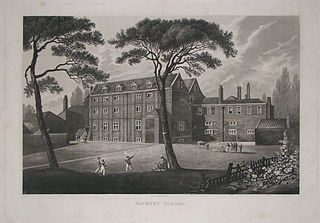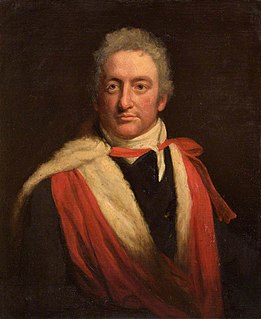External links
- Attribution
![]() This article incorporates text from a publication now in the public domain : Stephen, Leslie, ed. (1887). "Carter, Edmund". Dictionary of National Biography . Vol. 9. London: Smith, Elder & Co.
This article incorporates text from a publication now in the public domain : Stephen, Leslie, ed. (1887). "Carter, Edmund". Dictionary of National Biography . Vol. 9. London: Smith, Elder & Co.
Edmund Carter (died in or before 1788) was an English surveyor, topographer and tutor, known as the author of the first county history of Cambridgeshire.
In earlier life, Carter was a surveyor, and worked in 1731 on a survey of an estate at Weston Longueville in Norfolk. Some years later he lived in Norwich. By 1743 he had moved to Cambridge, and ran a school near St Botolph's Church. [1]
Carter had a wife and children, and on Cole's account was physically disabled. The family went to Ware, Hertfordshire and then Chelsea, Middlesex, where Carter was again a schoolmaster. He predeceased his wife, who died at the workhouse in Enfield on 15 September 1788. [1] [2]
Planning to write on the history of Cambridgeshire and the University of Cambridge, Carter approached the antiquarian William Cole and was rebuffed. He found local helpers, including John Newcome. [1]
![]() This article incorporates text from a publication now in the public domain : Stephen, Leslie, ed. (1887). "Carter, Edmund". Dictionary of National Biography . Vol. 9. London: Smith, Elder & Co.
This article incorporates text from a publication now in the public domain : Stephen, Leslie, ed. (1887). "Carter, Edmund". Dictionary of National Biography . Vol. 9. London: Smith, Elder & Co.

Charles Christopher Pepys, 1st Earl of Cottenham, was an English lawyer, judge and politician. He was twice Lord High Chancellor of Great Britain.

Samuel Pepys Cockerell (1753–1827) was an English architect.
Francis Coventry (1725–1759) was an English cleric and novelist, best known for The History of Pompey the Little.
The Lady Margaret Professorship of Divinity is a senior professorship in Christ Church of the University of Oxford. The professorship was founded from the benefaction of Lady Margaret Beaufort (1443–1509), mother of Henry VII. Its holders were all priests until 2015, when Carol Harrison, a lay theologian, was appointed to the chair.

Robert Plumptre (1723–1788) was an English churchman and academic, President of Queens' College, Cambridge from 1760.
Newcome Cappe, was an English unitarian divine. He served as the pastor of the York Unitarian Chapel, located in York, England. Cappe published various sermons and after his death his second wife, Catharine Cappe published many more.
Thomas Cole (1628–1697) was an English Independent minister.
Edmund Turrell was an English engraver and civil engineer.

Newcome's School was a fashionable boys' school in Hackney, then to the east of London, founded in the early 18th century. A number of prominent Whig families sent their sons there. The school closed in 1815, and the buildings were gutted in 1820. In 1825 the London Orphan Asylum opened on the site. Today the Clapton Girls' Academy is located here.
William Clubbe (1745–1814) was an English clergyman and poetical writer.

Martin Davy (1763–1839) was an English physician and academic, Master of Caius College, Cambridge from 1803. In later life he was also a cleric.
William Dade (c.1740–1790) was an English cleric and antiquary.

Thomas Harwood D.D. (1767–1842) was an English cleric, schoolmaster and antiquarian.
James William Geldart LL.D. (1785–1876) was an English cleric and academic. He was Regius Professor of Civil Law at Cambridge, from 1814 to 1847.
Henry Coventry was an English religious writer.
John Clark M.D. (1744–1805) was a Scottish physician, known also as a medical philanthropist in Newcastle upon Tyne.